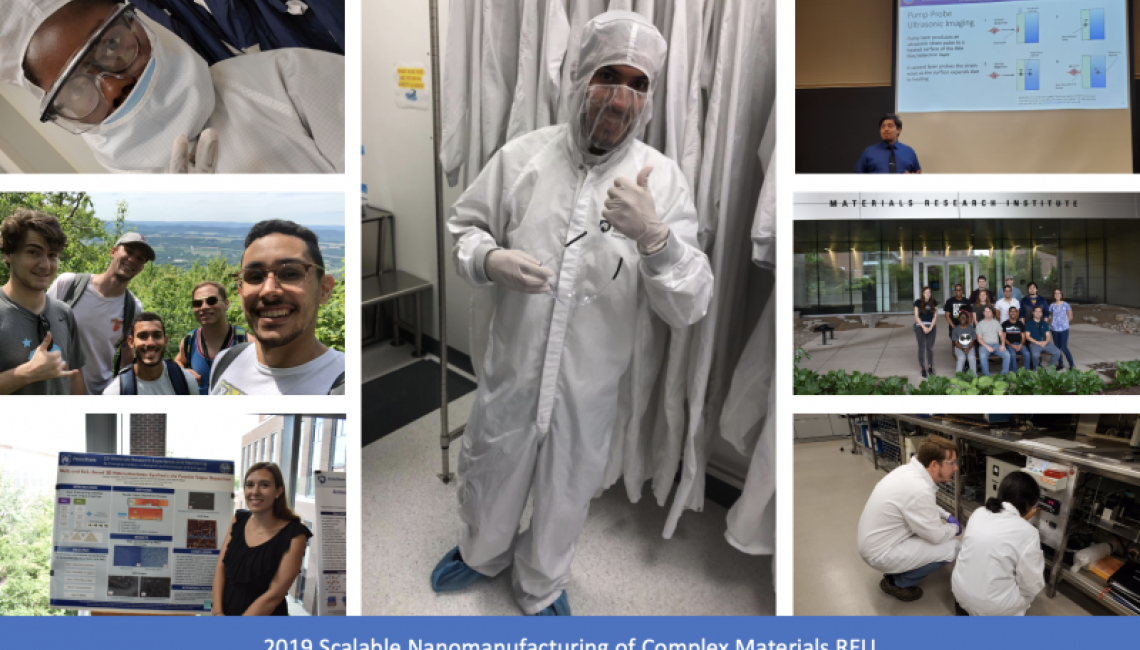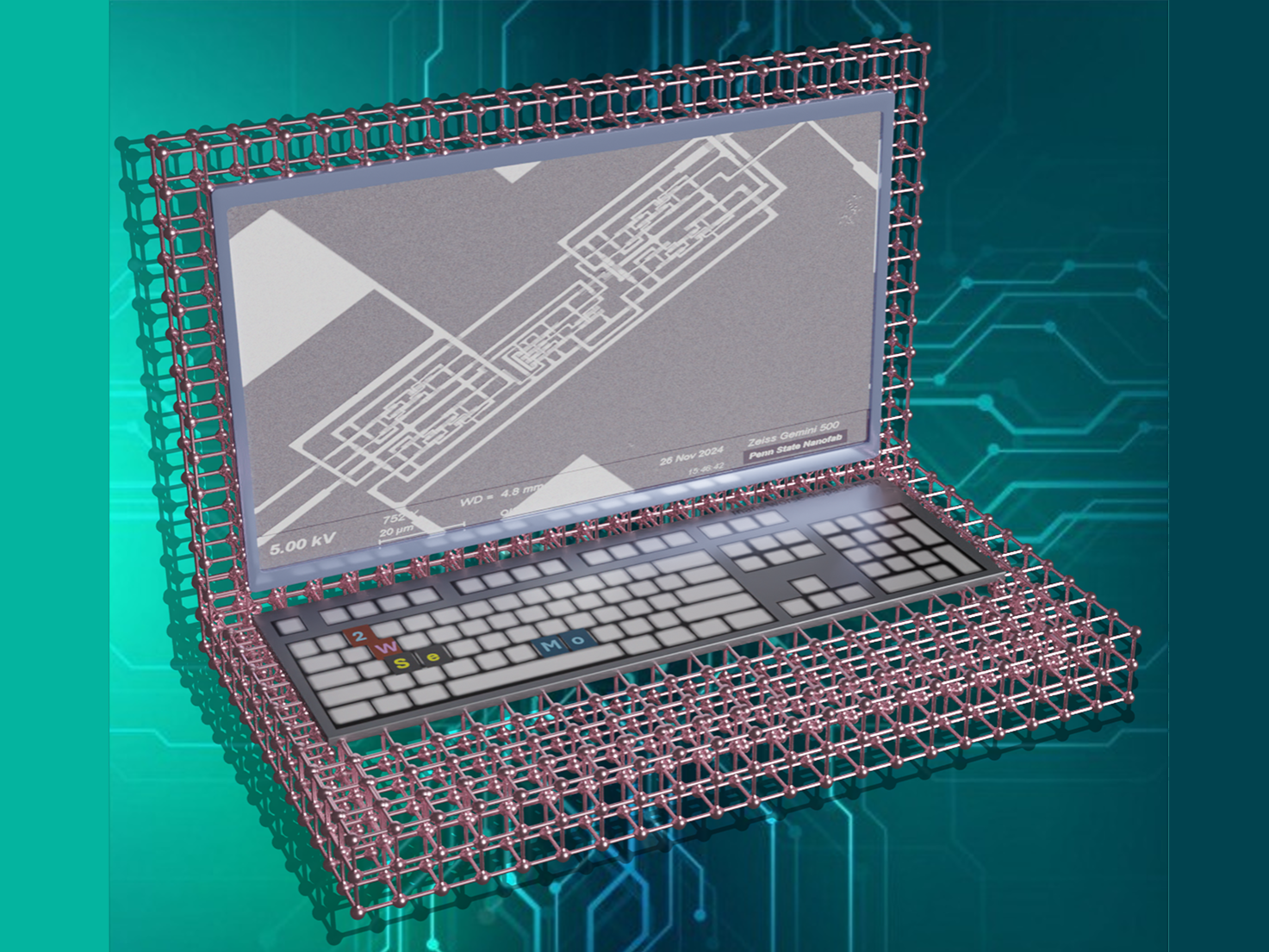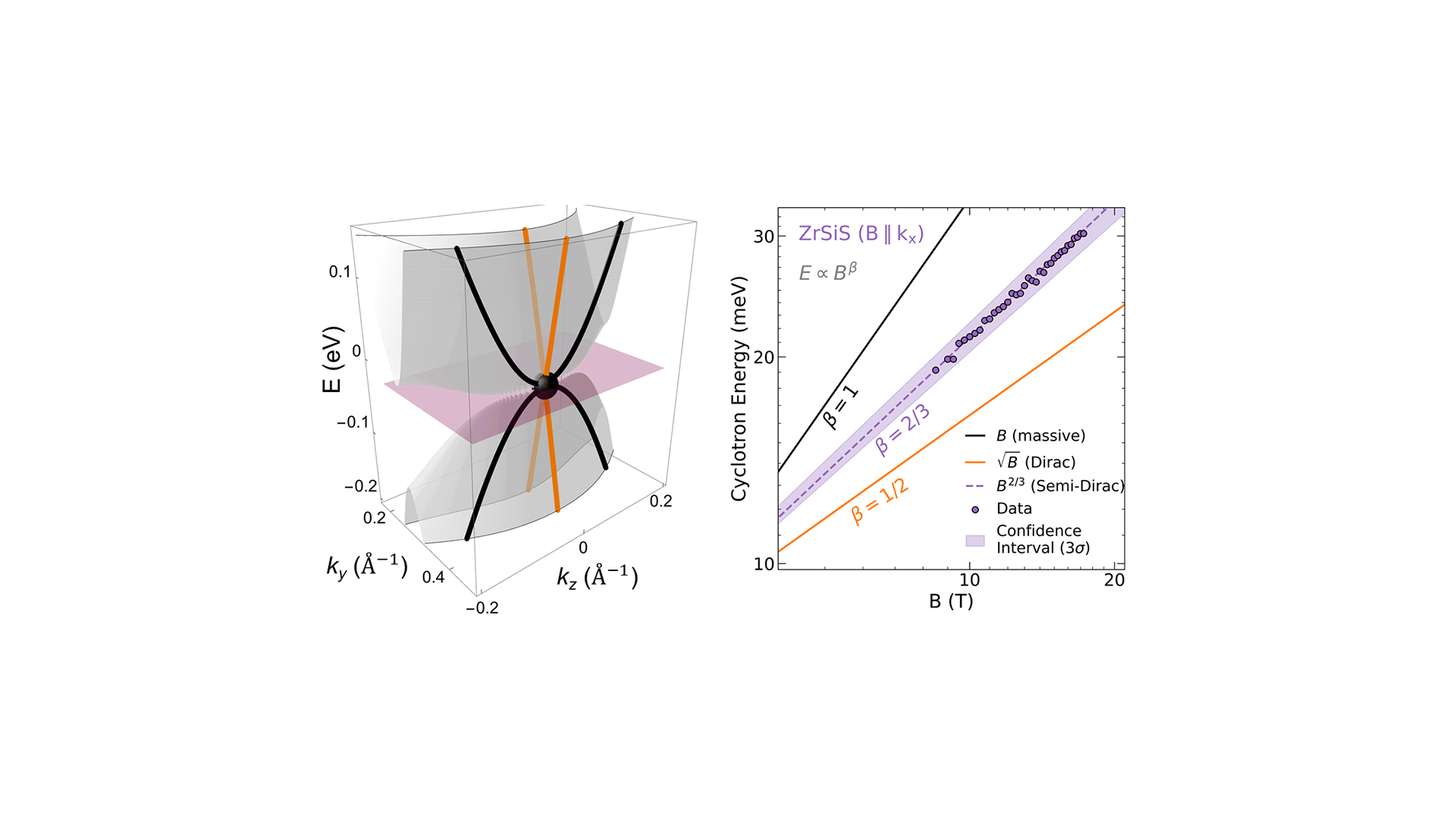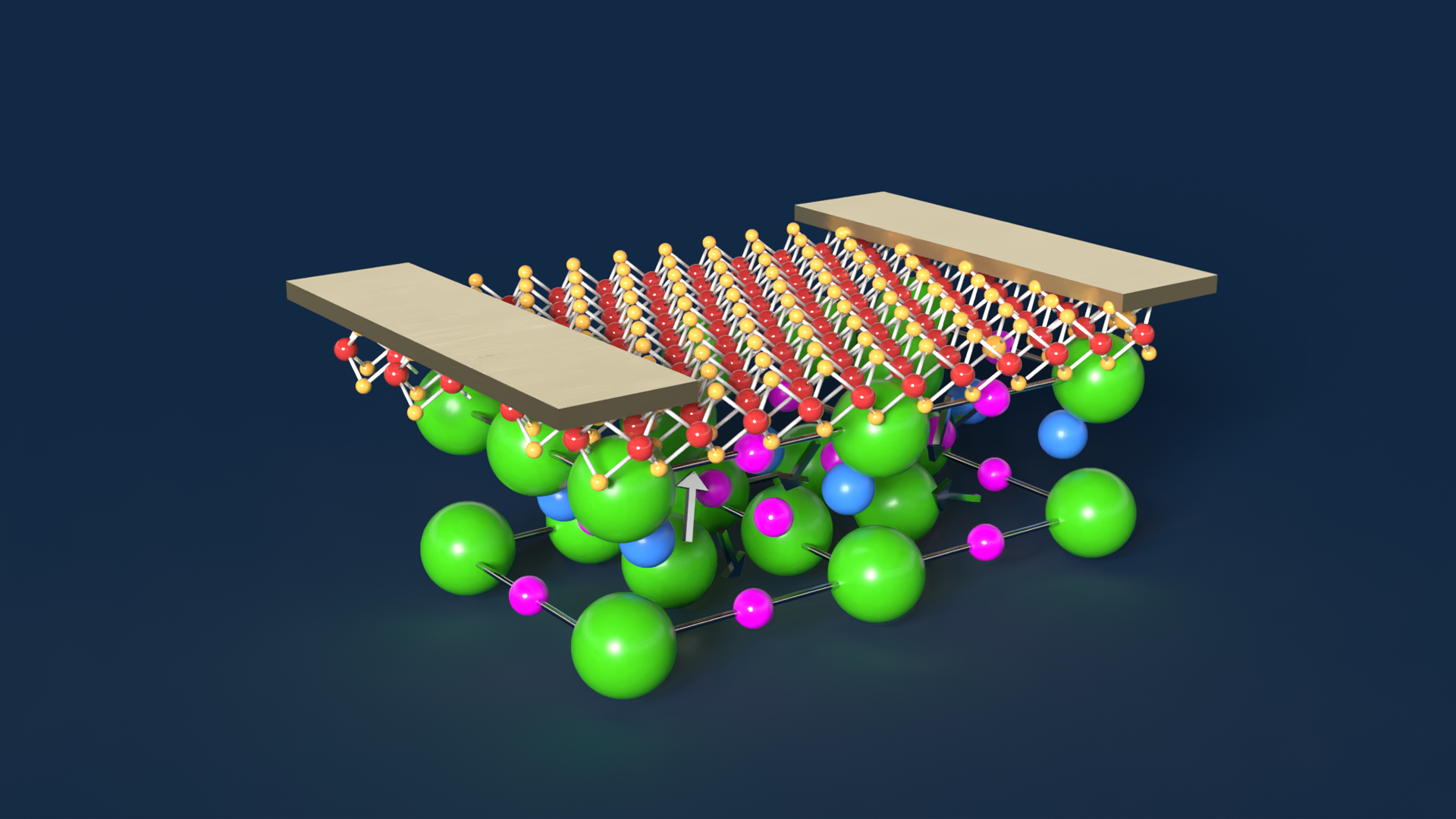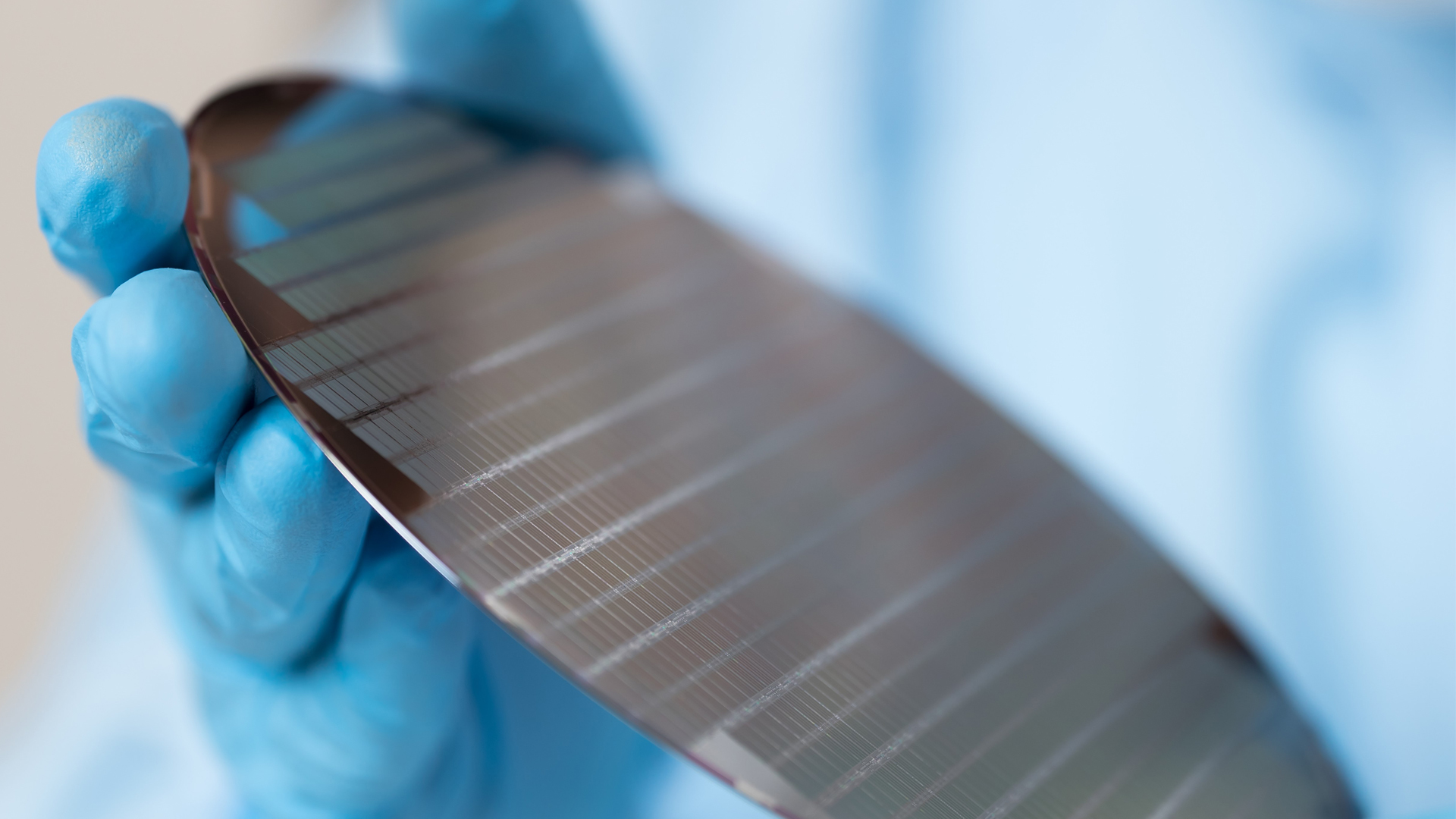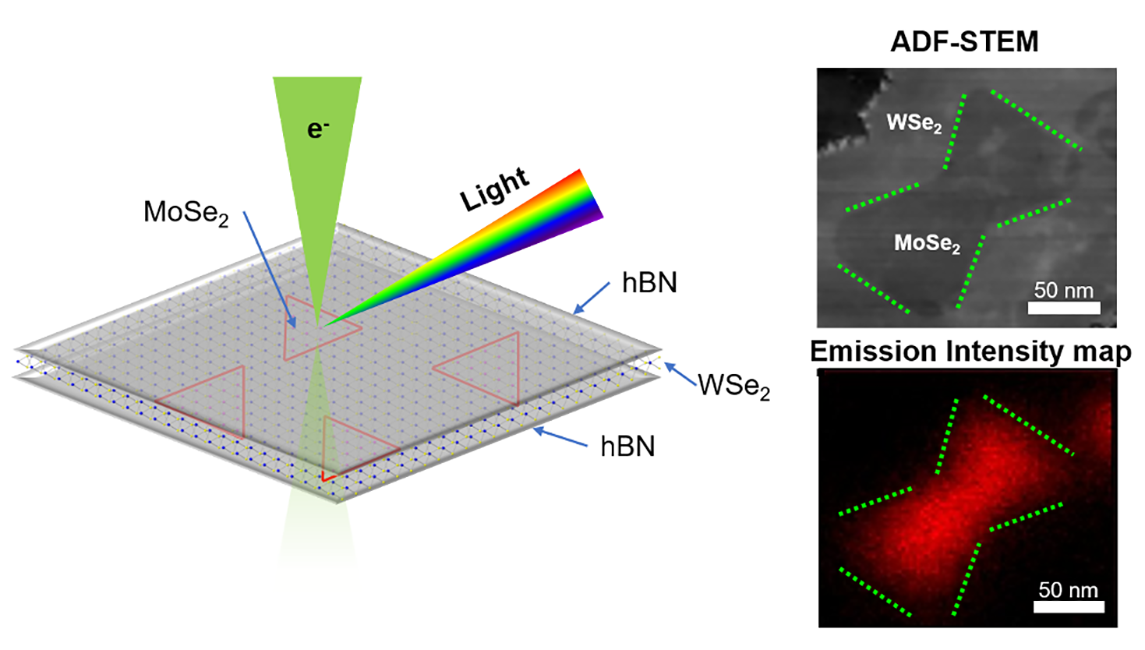2D Crystal Consortium- Materials Innovation Platform (2DCC-MIP)
The 2DCC-MIP is a national user facility, supported by the National Science Foundation, that is focused on the development of two dimensional (2D) chalcogenides for applications in next generation electronics beyond silicon for digital circuits and flexible electronics. These materials include 2D transition metal dichalcogenide (TMD) films that are only a few atoms thick, topological insulator (TI) bismuth chalcogenide films that only conduct on the 2D surface, and multilayers of dissimilar chalcogenide films whose properties are dominated by 2D interfaces.
In all these cases, the 2D nature of restricted electron motion gives rise to new physical phenomena not present in three dimensions. The 2DCC-MIP is focused on the development of single-crystal 2D materials that can lead to transformative discoveries enabling both fundamental science and qualitatively new device functionalities at the frontiers of technology in computing, displays, and communication.
Our Research Focus
The 2DCC-MIP is focused on advancing the synthesis of 2D materials within the context of a national user facility. The 2DCC is developing custom deposition tools with in-situ and real time characterization and facilities for bulk growth of chalcogenide single crystals. Unique capabilities are also available to simulate growth kinetics through first principles and reactive potential approach.
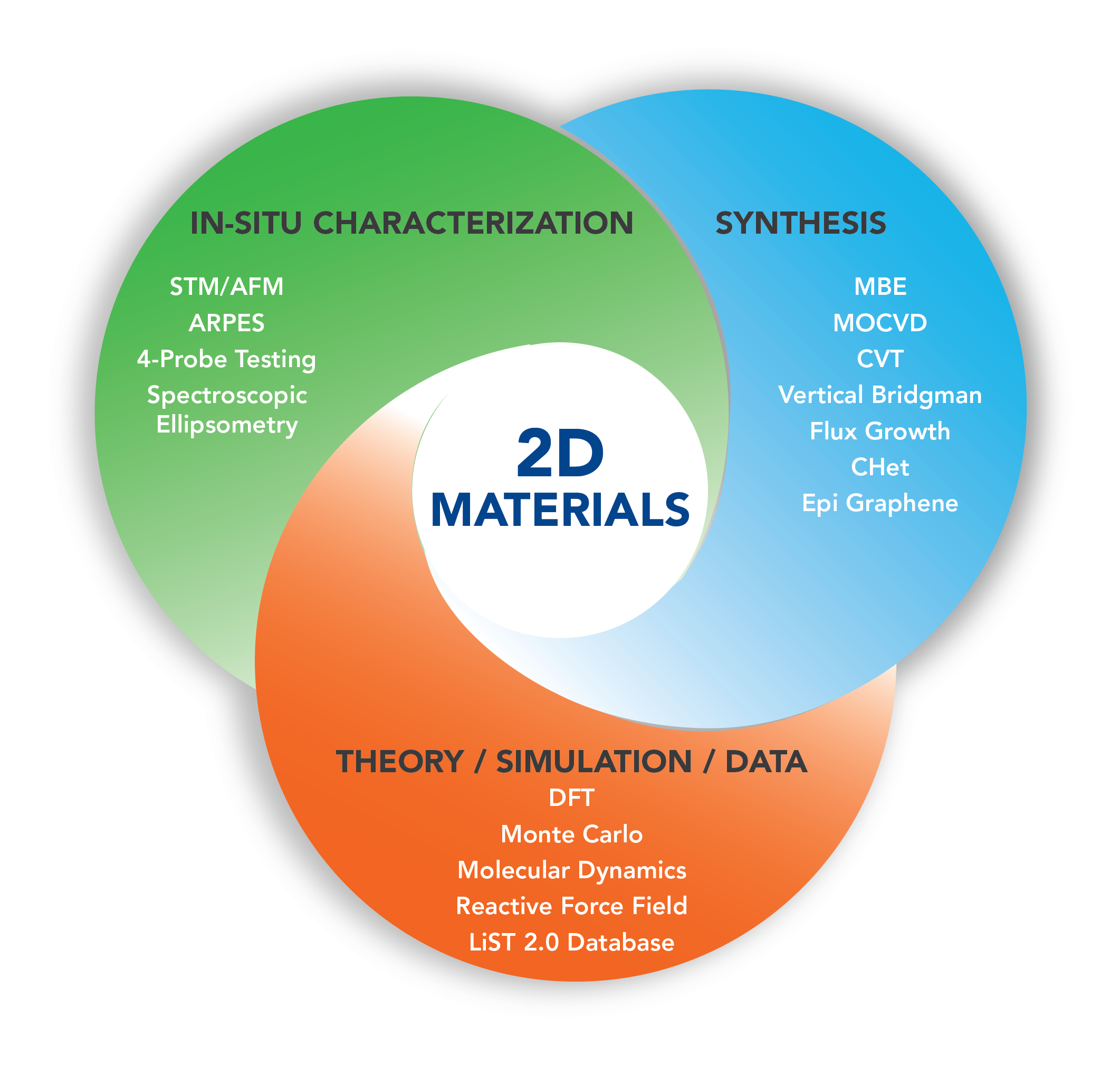
Please take a moment to watch the following video on the the 2DCC-MIP.
